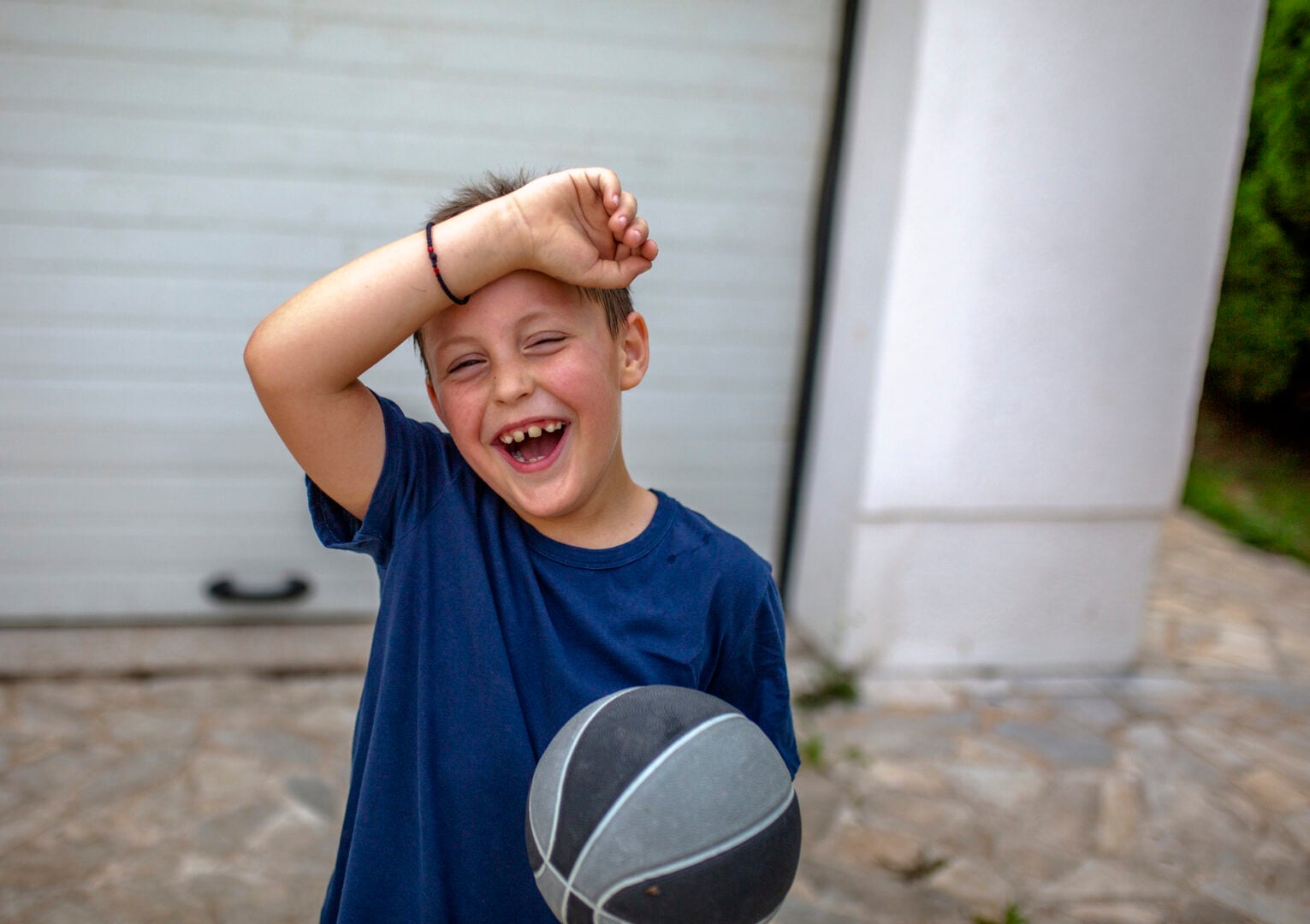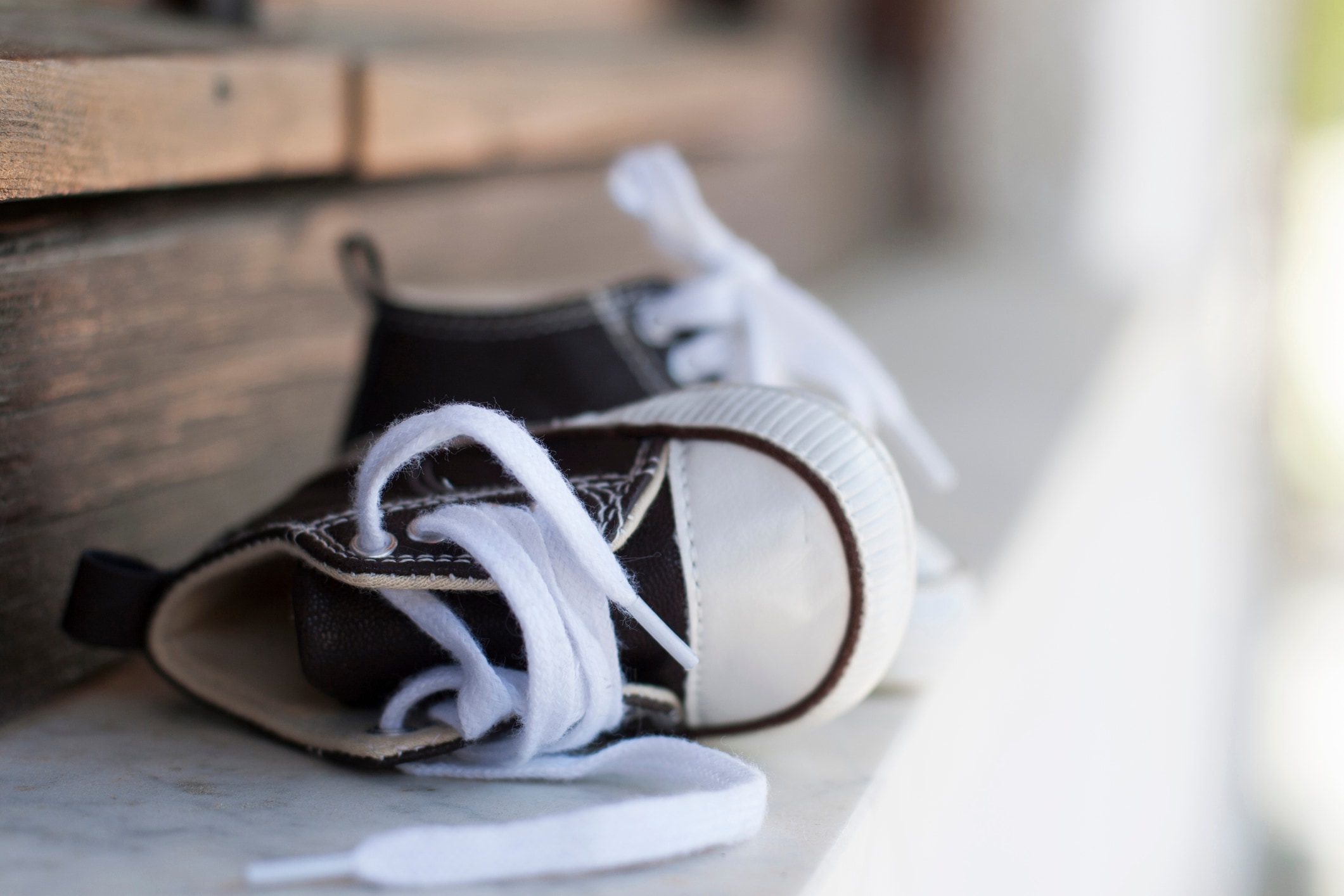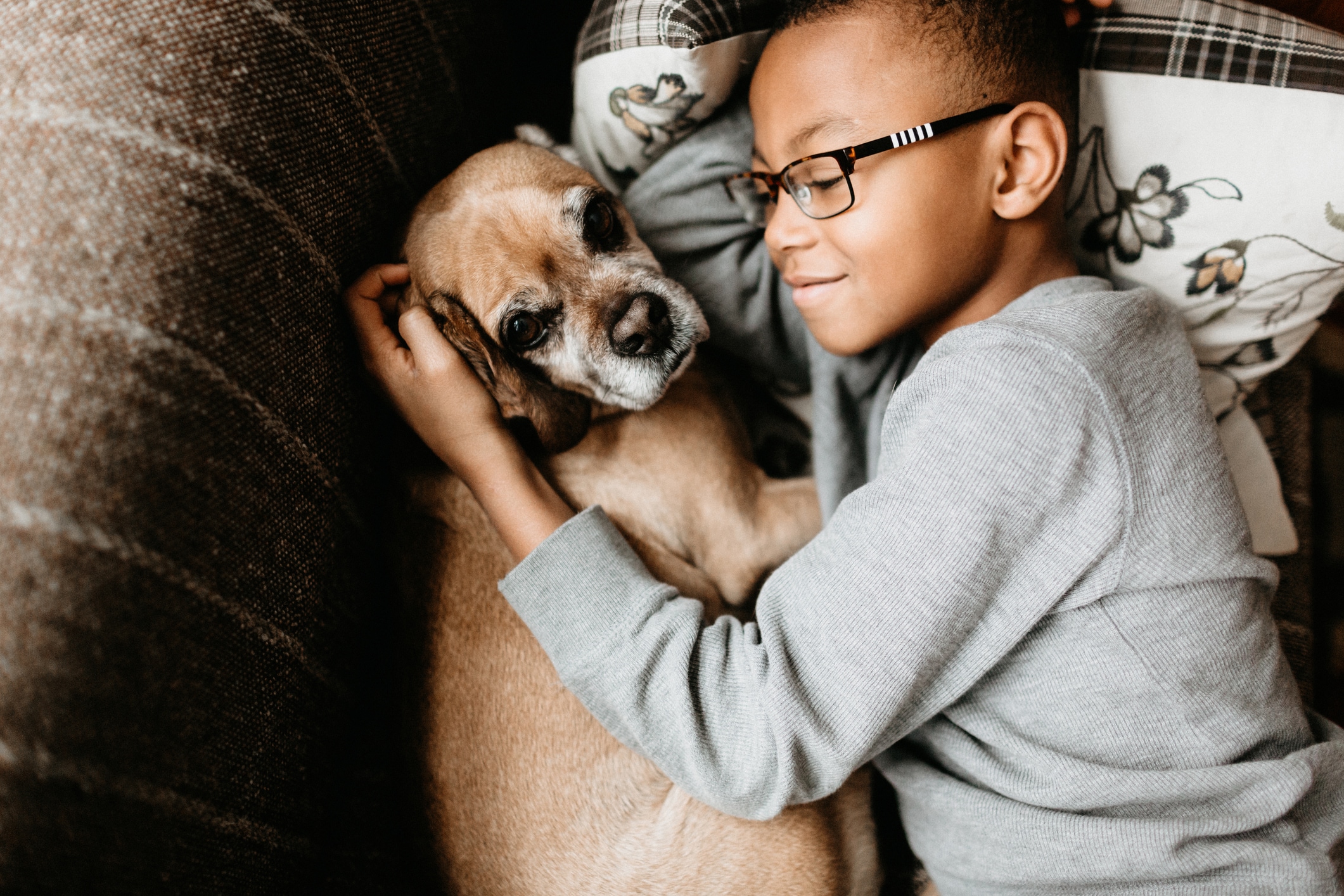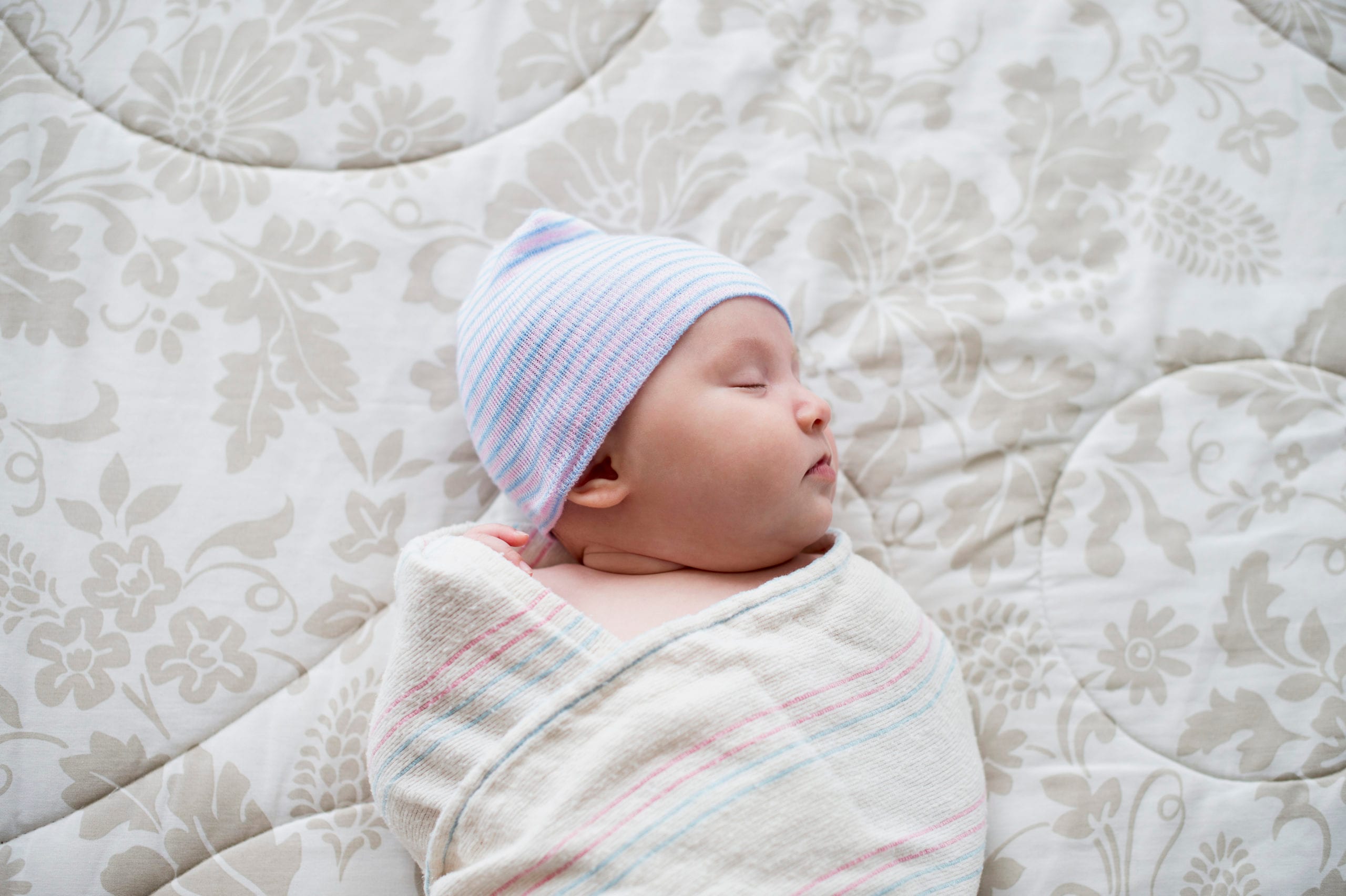In this article
Because of how earnest and adorable they are, kids are doled out a bounty of Get Out of Jail Free cards for a variety of social graces, but body odor isn’t cute. And when stinky armpits hit — which can happen in 7-, 6- and even 5-year-olds — moms, dads and caregivers want to nip it in the bud right off the bat.
First thing’s first, though. Body odor in children is perfectly normal. “As kids get closer to puberty, the adrenal glands start to ‘wake up’ a bit and activate sweat glands,” explains Dr. Nick DeBlasio, a pediatrician at the Pediatric Primary Care Center at Cincinnati Children’s Hospital Medical Center in Cincinnati. “The sweat produced reacts with bacteria on the skin and the result is body odor.”
Got a 6-year-old who’s smelling more ripe than sweet as of late? Here’s everything you need to know about body odor in little kids.
Key takeaways
- Body odor in kids as young as 5 is normal and usually caused by sweat mixing with skin bacteria.
- Diet, hygiene and individual differences can affect how strong the odor is.
- Deodorant is safe for kids, but regular bathing and healthy habits often help.
What causes body odor in little kids?
Body odor is generally caused by a combination of the chemicals in sweat being broken down by bacteria that are on the skin, according to Dr. Deborah Shropshire, a pediatrician and former director of the Oklahoma Department of Human Services.
“The specific sweat glands located in the armpits and groin areas are different from other sweat glands.”
— Dr. Deborah Shropshire, pediatrician
“While sweat is made up of mostly water, it also contains small amounts of other chemicals, such as proteins and salts,” Shropshire says. “The specific sweat glands located in the armpits and groin areas are different from other sweat glands and have more concentration of other chemicals, so the scents produced by the bacteria tend to be stronger.”
Join Care for free
What causes armpit odor in a younger child?
As Shropshire notes, there’s a higher concentration of chemicals in people’s armpits (yes, including 5-year-olds), and the result is a stronger smell.
“Usually the smell is from the type of sweat glands located in the armpits, which produce more sweat and sweat with more chemicals in it, which are then transformed by bacteria into scents,” Shropshire says.
And, she adds, what people eat can also affect the odor. “For example, garlic and cabbage can cause sweat to contain more sulfur, which tends to smell worse to other people.”
Is body odor in children normal?
Teens may be “notorious for having body odor,” according to Shropshire, but younger kids — as in 5-, 6- and 7-year-olds — aren’t exempt. “When my daughter was in second grade, I noticed she was a little stinky when she came home from school,” says Karen P., a mom of three in Edison, New Jersey. “But out of my three, she was the only one that had body odor that early on.”
“Teenagers tend to have body odor because the hormone changes occurring during puberty change the composition of sweat,” Shropshire explains, “but children can also have body odor through the same process of sweat being broken down by bacteria into scented chemicals. The chemical composition of sweat can include not only ‘routine’ things like salt, but also can be affected by what a child is eating, how much sweat they produce [some children have overactive sweat glands], how often and well they bathe and the type of bacteria found on the skin.”
In other words: As the case is with all things child related, each kid is different and will sweat — and stink — at their own pace and intensity.
Should I be concerned if my child has body odor?
While rare, some medical conditions can be the cause of unusual skin odors, according to Shropshire. “Usually these will be present in other places, such as breath or urine, or they’ll have other symptoms of illness. But certainly if an infant or child has really unusual body odor or a change in the way they smell that doesn’t seem to be related to puberty, it’s worth getting checked out,” she says.
Is it safe for younger kids to wear deodorant and/or antiperspirant?
Before you go shopping for what most of us refer to as “deodorant,” remember: Deodorants and antiperspirants (which can come either separate or together) aren’t the same thing. “Deodorants help cover up or change the body’s scent while antiperspirants actually slow the amount of sweat produced by glands,” Shropshire explains. Put another way: Deodorant won’t stop 7-year-olds from sweating, but it can help minimize their body odor.
A potential negative side effect from either is skin irritation for kids with sensitive skin, Shropshire notes, though it’s “pretty uncommon.”
According to Dr. Jen Trachtenberg, a board-certified pediatrician in New York City, kids who haven’t been hit with teenage hormones or puberty quite yet should stick to deodorant, as it’s unlikely they’re sweating enough to warrant an antiperspirant.
“There isn’t an age requirement for wearing deodorant. Using deodorant to control odor is a personal preference.”
— Dr. Jen Trachtenberg, pediatrician
Additionally, antiperspirant contains aluminum, which “some folks in the medical community have voiced concerns about,” according to Shropshire. “While the negative effects of the ingredients in antiperspirants haven’t been proven, most pediatricians don’t recommend antiperspirant use in pre-pubertal children,” she adds.
In general, though, it’s considered perfectly safe for young kids to use deodorant. “There isn’t an age requirement for wearing deodorant,” Trachtenberg says. “Using deodorant to control odor is a personal preference.”
Are there any natural remedies for body odor in children?
Not ready to make the leap into the land of deodorant — or simply want to prepare kids with an arsenal of B.O. defenders? Shropshire recommends the following natural remedies for body odor in kids:
- Regular bathing, which can be either every day or when they get dirty, sweaty or start to have B.O.
- Eating a healthy diet that includes fresh, leafy vegetables.
- For some children, drinking soy or almond milk instead of cow’s milk can also make a difference.
- Trying a DIY deodorant, such as the one from Wellness Mama, which uses shea butter, coconut oil and baking soda.
Finally, Shropshire says that if “reasonable efforts around hygiene and minor diet changes don’t help, or if your child is having other symptoms,” speak to your child’s pediatrician to make sure no other medical issue exists.





